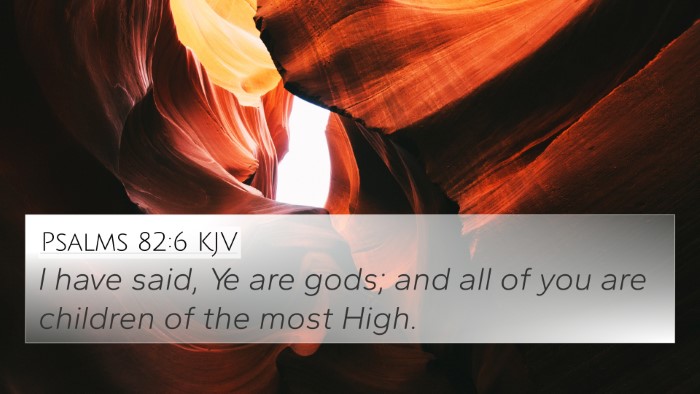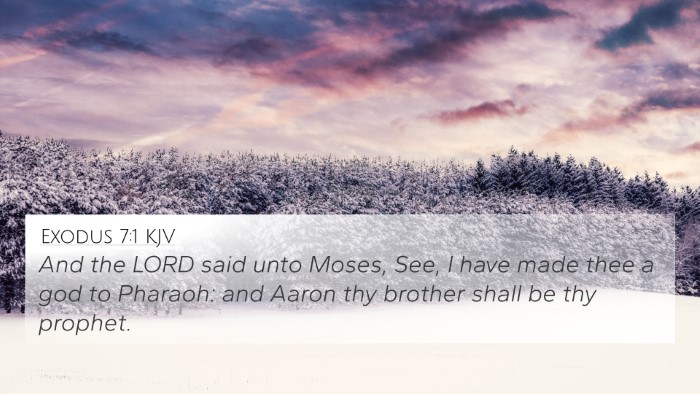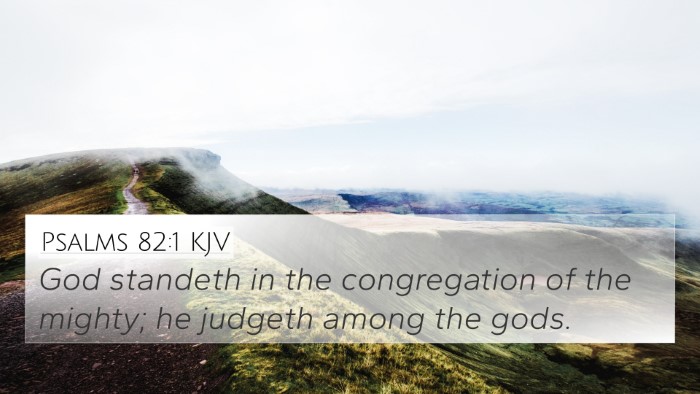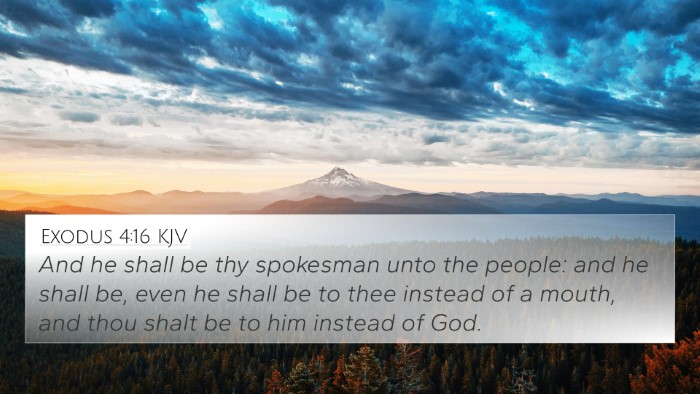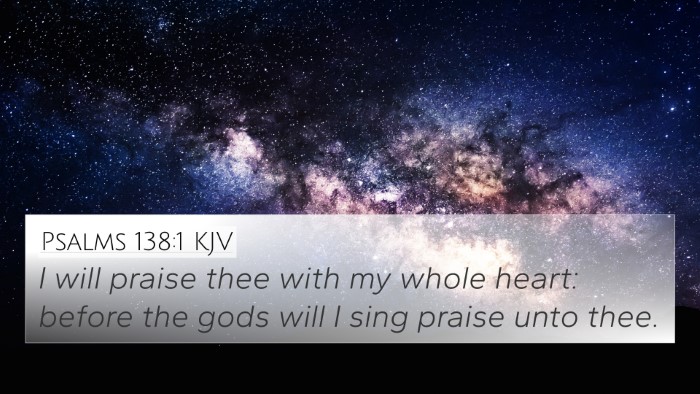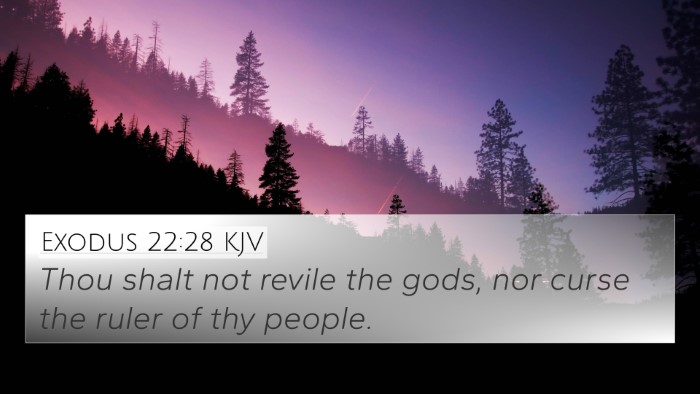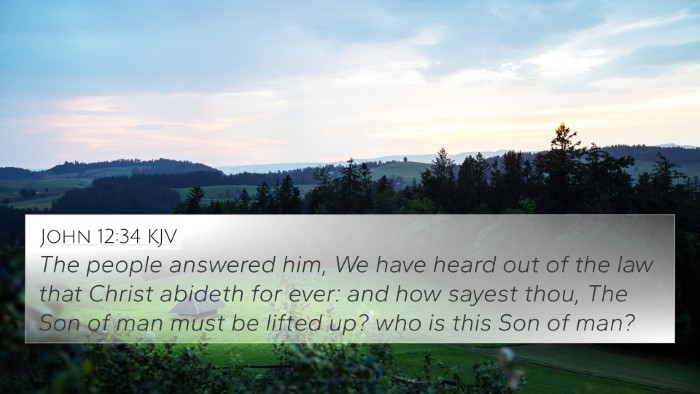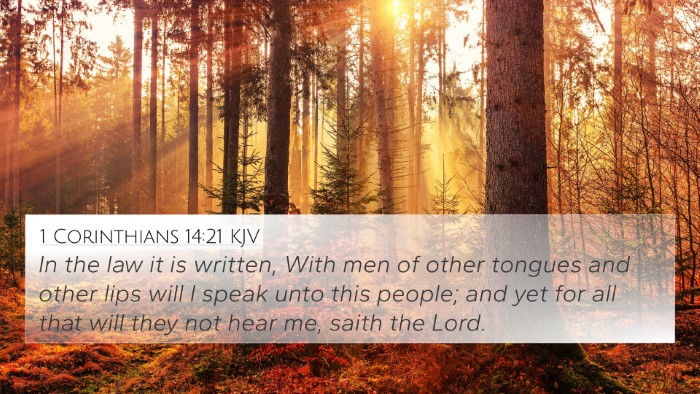Understanding John 10:34
Verse: John 10:34 - "Jesus answered them, Is it not written in your law, I said, Ye are gods?"
Overview
In this verse, Jesus speaks to the Pharisees and religious leaders who are accusing Him of blasphemy. He cites Psalm 82:6 to defend His claim of divinity, emphasizing that the term "gods" was applied to human judges in the context of their authority given by God.
Commentary Insights
-
Matthew Henry:
Henry discusses how Jesus uses the phrase "Ye are gods" to illustrate the flawed reasoning of the Pharisees. He emphasizes that if God can title mortal judges as "gods," then Christ, who is sent by the Father, holds an even greater title and authority.
-
Albert Barnes:
Barnes elaborates on the argument that Jesus presents, maintaining that the Jewish leaders, in questioning his claims, were failing to understand the Scriptures. He points to the inconsistency in their accusations while acknowledging man's nature as made in God's image.
-
Adam Clarke:
Clarke provides context on the cultural significance of the term "gods" in the Hebrew Scriptures, noting that judges were entrusted with divine authority. He argues that this indicates the importance of understanding the spiritual authority imparted to Christ as the Messiah.
Thematic Connections
This verse illustrates the divine authority of Christ through the usage of cross-references within Scripture, a key element for understanding its broader implications in a theological context.
As we explore the implications of John 10:34, it is essential to consider several Bible verse cross-references that bear significance to this discourse:
- Psalm 82:6 - "I said, 'You are gods, and all of you are children of the Most High.'
- Exodus 22:28 - "You shall not revile God, nor curse a ruler of your people."
- John 1:12 - "But as many as received Him, to them He gave the right to become children of God, even to those who believe in His name."
- Hebrews 1:8 - "But to the Son He says: 'Your throne, O God, is forever and ever; A scepter of righteousness is the scepter of Your kingdom.'
- John 5:18 - "Therefore the Jews sought all the more to kill Him, because He not only broke the Sabbath, but also said that God was His Father, making Himself equal with God."
- Matthew 5:48 - "Therefore you shall be perfect, just as your Father in heaven is perfect."
- Romans 8:17 - "And if children, then heirs—heirs of God and joint heirs with Christ, if indeed we suffer with Him, that we may also be glorified together."
Connections Between Bible Verses
The connections between these verses suggest a thematic dialogue regarding divine authority, the nature of God, and believers' relationship with Him. The idea that humans can be given authority (as seen in Psalm 82) speaks to God's delegation of power and how ultimately, this authority culminates in Christ, who is fully divine yet incarnate.
Comparative Bible Verse Analysis
To analyze the teaching of John 10:34 comparatively, we consider the representations of both earthly and heavenly authority. Jesus' challenge to the Pharisees emphasizes their misunderstanding of the Law, juxtaposed with the understanding that those appointed by God, like judges, can possess a measure of authority that reflects God's own. This analogy prepares the audience to receive Jesus as the ultimate authority, thus elevating the dialogue between human and divine.
Tools for Bible Cross-Referencing
For those wishing to delve deeper into the study of John 10:34 and the associated themes, several tools can assist in cross-referencing Biblical texts:
- Bible Concordance: A tool making it easier to find verses related to keywords and themes.
- Bible Cross-Reference Guide: Provides organized readings and connections between Scriptures.
- Bible Reference Resources: Include various commentaries and dictionaries that enrich study.
- Cross-Reference Bible Study Methods: Strategies focusing on thematic or verse-to-verse explorations.
Conclusion
In summary, John 10:34 invites us to reflect on the nature of Christ as God's representative and to better understand the connection between various Biblical themes of authority, divinity, and the human experience. Through thoughtful cross-referencing of Scriptures, we gain insights that enrich our understanding of God's Word.
This approach also highlights the importance of inter-Biblical dialogue, revealing how themes interconnect and how we might prepare for sermons or personal studies based on these insights. As we engage with God's Word, may we seek to discover deeper meanings through both verse studies and the connections they forge across the Biblical narrative.



